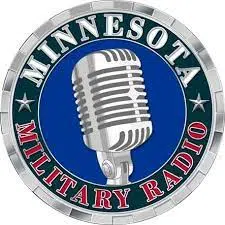(Reuters) – Ukrainian and Russian forces remained entrenched in eastern Ukrainian battlegrounds going into Wednesday, a day of commemoration in both countries to mark the anniversary of Hitler’s invasion of the Soviet Union in 1941.
Fighting in the months-long war has favored Russia in recent weeks because of its huge edge in artillery firepower, a fact Ukrainian President Volodymyr Zelenskiy acknowledged in a late Tuesday night address.
“Thanks to tactical maneuvers the Ukrainian army is strengthening its defences in the Luhansk region,” he said. “That is really the toughest spot. The occupiers are also pressing strongly in the direction of Donetsk.”
Luhansk and Donetsk provinces combined are known as the Donbas, where Russian-backed separatists have been fighting Ukrainian forces since 2014 following Russia’s annexation of Crimea from Ukraine.
“And just as actively as we are fighting for a positive decision by the European Union on Ukraine’s candidate status, we are also fighting every day for modern weaponry for our country. We don’t let up for a single day,” Zelenskiy said, urging those nations supporting his country to speed up arms deliveries.
In a symbolic decision, Ukraine is set to become an official candidate for European Union membership on Thursday, EU diplomats said.
Russia’s failure to make a major breakthrough so far since invading Ukraine on Feb. 24 means time is on the side of Ukrainians, according to some military analysts.
“It’s a heavyweight boxing match. In 2 months of fighting, there has not yet been a knockout blow. It will come, as RU forces become more depleted,” retired U.S. Lieutenant General Mark Hertling, a former commander of U.S. ground forces in Europe, wrote on Twitter.
COMMEMORATION
June 22 is a significant date in Russia – the “Day of Remembrance and Sorrow” – marking when Hitler’s Nazi Germany forces invaded the Soviet Union in World War Two. It is also commemorated in Ukraine and neighbouring Belarus, then part of the Soviet Union. The war there lasted 1,418 days from June 22, 1941, and historians estimate around 27 million Soviet soldiers and civilians died.
Russian President Vladimir Putin, who launched what he calls a “special military operation” in Ukraine to root out Nazis, is due to lay flowers to honor the dead.
The Ukrainian government and its Western backers say Putin has used a false pretext to wage an unprovoked war of aggression on its neighbor.
To mark the anniversary, the Russian defence ministry on Wednesday released documents dating back to the start of World War Two purporting to show Germany intended to claim the Soviet army was bombing churches and cemeteries to justify its invasion.
“Just as nowadays, in 1941, the Nazis prepared provocations in advance to discredit our state,” Russia’s defence ministry said.
Russian forces and separatists in eastern Ukraine made further advances on Tuesday, pushing towards the city of Lysychansk, the Ukrainian forces’ main bastion in the Donbas.
In some of the bloodiest fighting seen in Europe since World War Two, Russia has made slow progress in the Donbas since April in conflict that has cost thousands of soldiers’ lives on both sides.
Some of the fighting has spanned the Siverskyi Donets river that curls through the Donbas, with Russian forces mainly on the east bank and Ukrainian forces mainly on the west.
But Ukrainian troops – and an estimated 500 civilians – are reportedly still holding out at a chemical plant in the east bank city of Sievierodonetsk, despite weeks of heavy bombardment.
The governor of Luhansk province, Serhiy Gaidai, confirmed that Toshkivka, a settlement on the west bank further south, was now controlled by Russian forces. This could boost Moscow’s hopes of cutting off Lysychansk from Ukrainian-held territory.
Rodion Miroshnik, ambassador to Russia of the pro-Moscow self-styled Luhansk People’s Republic, said forces were “moving from the south towards Lysychansk” with firefights erupting in a number of towns.
In retaliation for Western sanctions, Russia has begun pumping reduced volumes of gas to Europe via Ukraine.
European Union states from the Baltic Sea in the north to the Adriatic in the south have outlined measures to cope with a supply crisis after the invasion put energy at the heart of an economic battle between Moscow and the West.
(Reporting by Reuters bureax; writing by Grant McCool; Editing by Lincoln Feast.)


